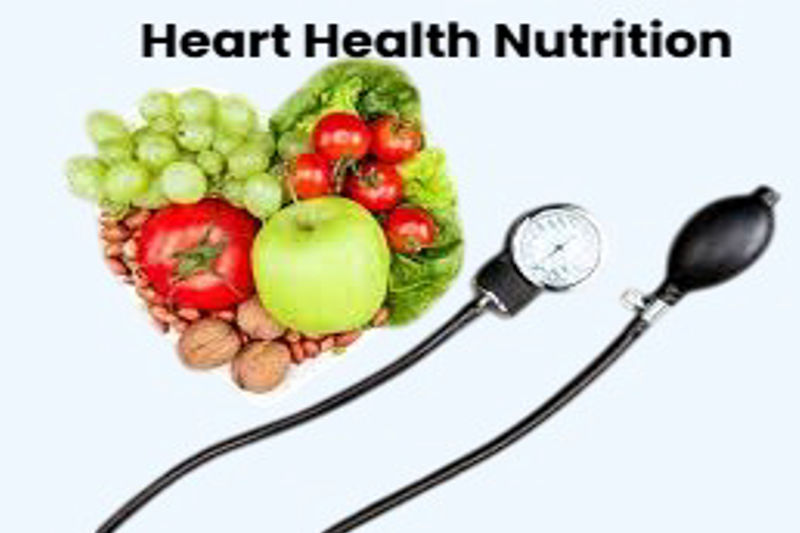High blood pressure, or hypertension, is one of the most common health concerns in modern society. According to the World Health Organization (WHO), over 1.28 billion adults aged 30–79 worldwide suffer from elevated blood pressure. It is a significant risk factor for kidney issues, heart disease, stroke, and other severe illnesses. But what many people don’t realize is how deeply diet influences blood pressure levels. Understanding how diet affects blood pressure can empower individuals to make meaningful changes that enhance both longevity and quality of life.
Understanding Blood Pressure
Blood pressure is the force that blood exerts on the walls of arteries as the heart pumps it throughout the body. It’s measured using two values:
• Systolic pressure (top number): The pressure when the heart beats.
• Diastolic pressure (bottom number): The pressure when the heart is at rest between beats.
A normal reading is usually around 120/80 mmHg. Anything above 130/80 mmHg is considered elevated, and consistent readings above this threshold often lead to a diagnosis of hypertension.
How Diet Affects Blood Pressure: A Scientific Perspective
So, how does diet affect blood pressure? The answer lies in the balance of nutrients and substances that either support or strain cardiovascular function. Certain foods can cause the body to retain sodium, constrict blood vessels, or affect hormonal regulation—all of which influence blood pressure.On the other hand, other nutrients improve circulation, lower inflammation, and relax blood vessels.
Sodium and Salt Intake
The most wellknown dietary factor affecting blood pressure is sodium, a mineral primarily found in salt. Excess sodium causes the body to retain water, which increases the volume of blood and, subsequently, the pressure on artery walls. Fast food, frozen dinners, canned soups, and processed foods are all significant sources of hidden salt. The American Heart Association recommends consuming no more than 2,300 mg of salt per day, ideally no more than 1,500 mg, especially for those with high blood pressure. Potassium: The Counterbalance
Potassium lowers blood pressure while sodium raises it. Potassium reduces blood vessel wall tension and aids in the body’s sodium excretion. Increasing potassium intake is one of the most effective dietary strategies for managing blood pressure, especially when paired with sodium reduction.
The DASH Diet: A Proven Model
Lowering blood pressure is the aim of the Dietary Approaches to Stop Hypertension (DASH) diet. This evidencebased eating plan emphasizes:
• Fruits and vegetables
• Whole grains
• Lean protein (especially fish and poultry)
• Lowfat dairy products
• Nuts and legumes
At the same time, it limits red meat, sugary beverages, and foods high in saturated fat. Numerous studies have demonstrated that the DASH diet can reduce systolic blood pressure by 8 to 14 points—a significant improvement that often rivals medication.
How Dietary Weight Management Affects Blood Pressure
One of the main risk factors for high blood pressure is being overweight. Being overweight or obese increases the workload on the heart and can contribute to insulin resistance and inflammation, both of which negatively affect blood pressure. A caloriecontrolled, nutrientrich diet can promote gradual weight loss, leading to measurable reductions in blood pressure.
Alcohol and Caffeine: Know the Limits
Alcohol, when consumed excessively, can raise blood pressure and reduce the effectiveness of blood pressure medications. Limiting intake to no more than one drink per day for women and two for men is generally considered safe. Caffeine, commonly found in coffee and energy drinks, may cause a temporary spike in blood pressure in some people. While moderate consumption is typically fine for most individuals, those with hypertension should monitor their response to caffeine closely.
Processed Foods and Hidden Dangers
Another key to understanding how diet affects blood pressure is recognizing the role of ultraprocessed foods. These products—such as packaged snacks, sugary cereals, and ready toeat meals—are typically high in salt, sugar, and unhealthy fats. Additionally, they frequently include preservatives and additives that might upset hormonal balance and cause inflammation. One of the most effective ways to promote healthy blood pressure levels is to limit consumption of processed foods.
Beneficial Foods to Include
To harness the positive effects of diet on blood pressure, focus on including the following:
• Nitrates, which are abundant in leafy greens like spinach, kale, and Swiss chard, aid in blood vessel dilatation.
• Berries (especially blueberries): Packed with antioxidants that reduce blood vessel stiffness.
• Beets: Contain dietary nitrates that convert to nitric oxide, helping blood vessels relax.
• Oats and whole grains: Provide fiber that aids in weight control and improves cholesterol levels.
• Lowfat yogurt and milk: Good sources of calcium, which may support blood pressure regulation.
Hydration and Its Role
Adequate water intake supports kidney function and helps regulate sodium balance. Dehydration can cause blood vessels to constrict, leading to elevated pressure. Drinking plenty of water—about 8–10 cups a day, depending on activity level and climate—can indirectly help maintain optimal blood pressure.
Meal Timing and Portion Control
Large, heavy meals can spike blood pressure temporarily, especially if they’re high in salt or fat. Eating smaller, balanced meals throughout the day can help keep blood pressure steady and prevent energy crashes that lead to poor food choices.
Final Thoughts
Understanding how diet affects blood pressure is more than just a health lesson—it’s a lifesaving insight. With chronic diseases on the rise, taking control of what we eat offers a proactive way to prevent hypertension or manage it effectively without relying solely on medication.
Eating a hearthealthy diet rich in fresh produce, whole grains, lean proteins, and lowfat dairy—while limiting salt, processed foods, and excess alcohol—can dramatically improve cardiovascular health. When paired with regular physical activity, stress management, and adequate sleep, dietary changes can lead to lasting improvements in blood pressure and overall wellbeing.

Posted inHealth

